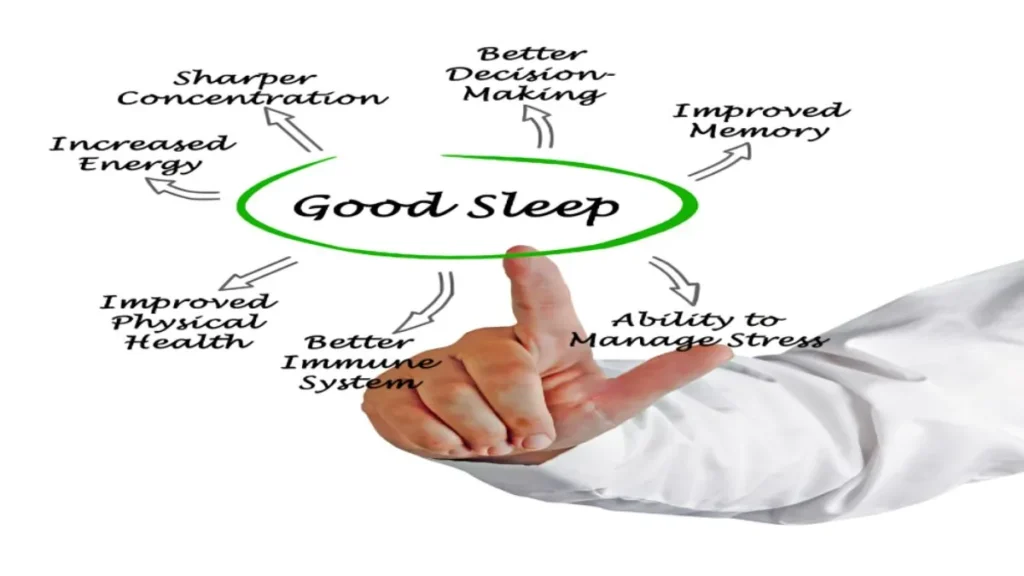HEALTH AND FITNESS
How Well Do You Know the Link Between Sleep and Hip Health?

When it comes to maintaining overall well-being, sleep is often overlooked. However, it plays a crucial role in our physical health, especially concerning conditions like hip pain. Many individuals may not realize the profound connection between the quality of their sleep and the health of their hips. This article will explore how sleep impacts hip health and why it’s essential to understand this relationship. Test your knowledge of sleep and hip pain to uncover the intricacies of this connection.
Table of Contents
The Importance of Sleep for Overall Health
Sleep is not just a time for rest; it’s a vital process that allows our bodies to recover and rejuvenate. During sleep, the body engages in essential functions such as muscle repair, hormone regulation, and immune system strengthening. Without adequate sleep, these processes can be disrupted, leading to various health issues, including chronic pain.
The Connection Between Sleep and Hip Health
Hip pain can arise from various factors, including injury, arthritis, or even lifestyle choices. However, research indicates that inadequate sleep can exacerbate these conditions. Poor sleep quality has been linked to increased pain perception, meaning that those who sleep poorly may experience more intense discomfort from hip issues.
Inflammation and Pain Perception
One significant way sleep affects hip health is through its role in inflammation. Sleep deprivation can lead to an increase in inflammatory markers in the body, which can worsen conditions like arthritis. For individuals suffering from hip pain due to inflammation, poor sleep can create a vicious cycle where pain leads to restless nights and restless nights lead to heightened pain.

Muscle Recovery
Sleep is essential for muscle recovery, including the muscles surrounding the hips. When we sleep, our bodies produce growth hormone, which plays a crucial role in muscle repair. If you’re not getting enough restorative sleep, your hip muscles may not recover properly from daily stressors or exercise, leading to stiffness and pain.
Sleep Position and Hip Alignment
How you sleep can also significantly impact hip health. Sleeping on your side can place additional pressure on the hips, especially if you’re not using a supportive mattress or pillow. Conversely, sleeping on your back may help maintain proper alignment and reduce pressure on the hip joints. It’s crucial to find a sleep position that provides comfort and support for your hips.
Improving Sleep for Better Hip Health
To enhance both sleep quality and hip health, consider the following tips:
1. Create a Sleep-Friendly Environment
Your bedroom should be a sanctuary for sleep. Keep the space dark, quiet, and cool. Investing in a comfortable mattress that provides adequate support for your hips can make a significant difference. Memory foam or hybrid mattresses are often recommended for their ability to contour the body and relieve pressure points.
2. Establish a Sleep Routine
Consistent sleep schedules can improve sleep quality. Aim to go to bed and wake up at the same time each day, even on weekends. This regularity helps regulate your body’s internal clock and can enhance your overall sleep quality.
3. Manage Stress and Anxiety
Stress can significantly impact sleep quality. Incorporating relaxation techniques such as deep breathing, meditation, or gentle yoga before bed can help ease tension and prepare your body for restful sleep.
4. Stay Active
Regular physical activity can improve sleep quality and help maintain hip health. Exercise strengthens the muscles around the hips and can help alleviate pain. However, try to avoid vigorous workouts close to bedtime, as they may interfere with your ability to fall asleep.
5. Watch Your Diet
What you eat can also impact your sleep and overall health. Avoid heavy meals, caffeine, and alcohol close to bedtime. Instead, opt for light snacks that promote sleep, such as yogurt or bananas.

Conclusion
Understanding the link between sleep and hip health is essential for anyone experiencing hip pain. By prioritizing sleep and making adjustments to your sleep environment and habits, you can alleviate discomfort and enhance your overall well-being. Remember, a good night’s sleep is not just about rest; it’s a crucial component of maintaining healthy hips and a pain-free life.
So, as you think about your sleep habits, consider how they might be affecting your hip health. Test your knowledge on sleep and hip pain and take the necessary steps to improve both your sleep and your overall quality of life. Prioritizing these aspects will not only help you sleep better but also support your hip health for years to come.
-

 GENERAL2 months ago
GENERAL2 months agoUncovering the World of кинокрадко: The Dark Side of Film Piracy
-

 GENERAL2 weeks ago
GENERAL2 weeks agoUnveiling the Art of преводсч: How Translators Bridge Language Barriers
-

 YOGA1 year ago
YOGA1 year ago4 Person Yoga Poses for Beginners
-

 GENERAL2 months ago
GENERAL2 months agoThe Journey of iamnobody89757: From Anonymous User to Internet Sensation























